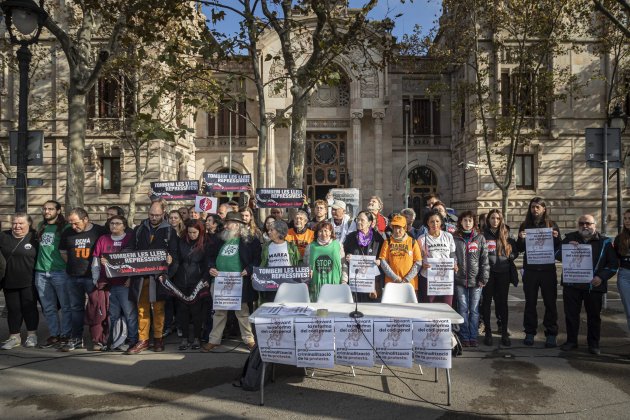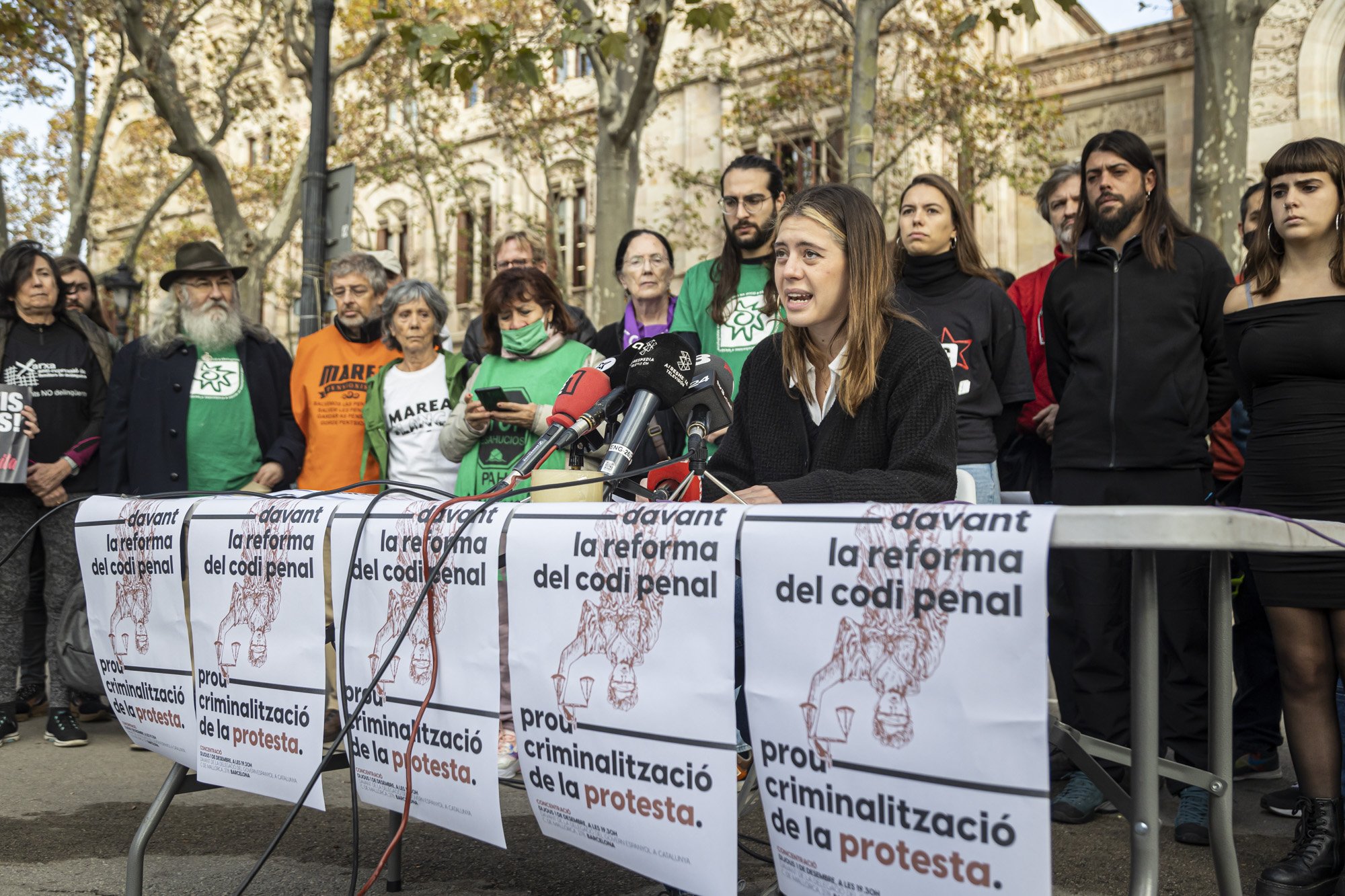Coming together to take a stand. Representatives of around 40 groups from the broad Catalan network of social and political associations gathered this Wednesday, in front of the headquarters of the Catalan High Court (TSJC), to denounce that the proposal - propelled by Spain's governing PSOE-Podemos coalition, with the support of ERC - to reform the Penal Code, "is a new attack on the fundamental rights of citizens and will mean a setback in terms of democracy". The organizers read a manifesto in which they celebrated the repeal of the crime of sedition, but denounce that the modification of the crime of public disorder "represents a violation of rights and would intensify the repressive trend of recent years". For this reason, they are calling for the proposed new law to be modified and to that end have called a protest for this Thursday at seven in the evening outside the Spanish government's delegation in Barcelona.
At this Wednesday's gathering outside the court, Paula Cardona read a manifesto, signed by forty civil groups, such as legal aid group Alertà Solidària, pro-independence Òmnium Cultural, feminist Ca la Dona, green Ecologistes en Acció, housing groups Plataforma d'Afectats per la Hipoteca (PAH) and Sindicat de Llogateres, neighbourhood associations federation CONFAVC, the pensioners of Marea Pensionista and the Intersindical trade union. Those gathered chanted: "The right to protest!" and "The people, united, will never be defeated!", and expressed their demands to improve people's lives.

The dangers of vague terminology
The manifesto specifies that the introduction of a new crime, aggravated public disorder, brings with it new terminology as a way of punishing old forms of protest. The groups say that if the reform succeeds, the definition of public disorder will include "intimidation", a term - they specify - that "includes a high degree of subjectivity and predictably greater incrimination". This new offence also increases the minimum sentence to three years in prison, which will mean that all those convicted of it will go to prison, a fact that until now could be avoided if the punishment decided by the court did not exceed two years.
Occupying spaces, to be criminalized
The Catalan associations taking part also warn that, under the law change, the invasion or occupation of premises or public or private spaces, without violence or even the generic "intimidation", will become a crime, punishable with up to six years in prison or a 12-month fine. For the associations, this implies a "clear criminalization" of the right to protest. And since the 2015 reform of the Penal Code and the approval of the so-called "gag law" - the Public Safety Law - law changes have gradually criminalized the different protest actions specific to each type of group - for example, sit-ins in bank offices have been made into crimes.
Due to all of this, the groups, which represent a wide spectrum of sectors and social interests across Catalonia, demanded that the Spanish Penal Code "be adapted to international standards on human rights" and rejected "any Penal Code that criminalizes social action that defends and conquers human rights for all".

